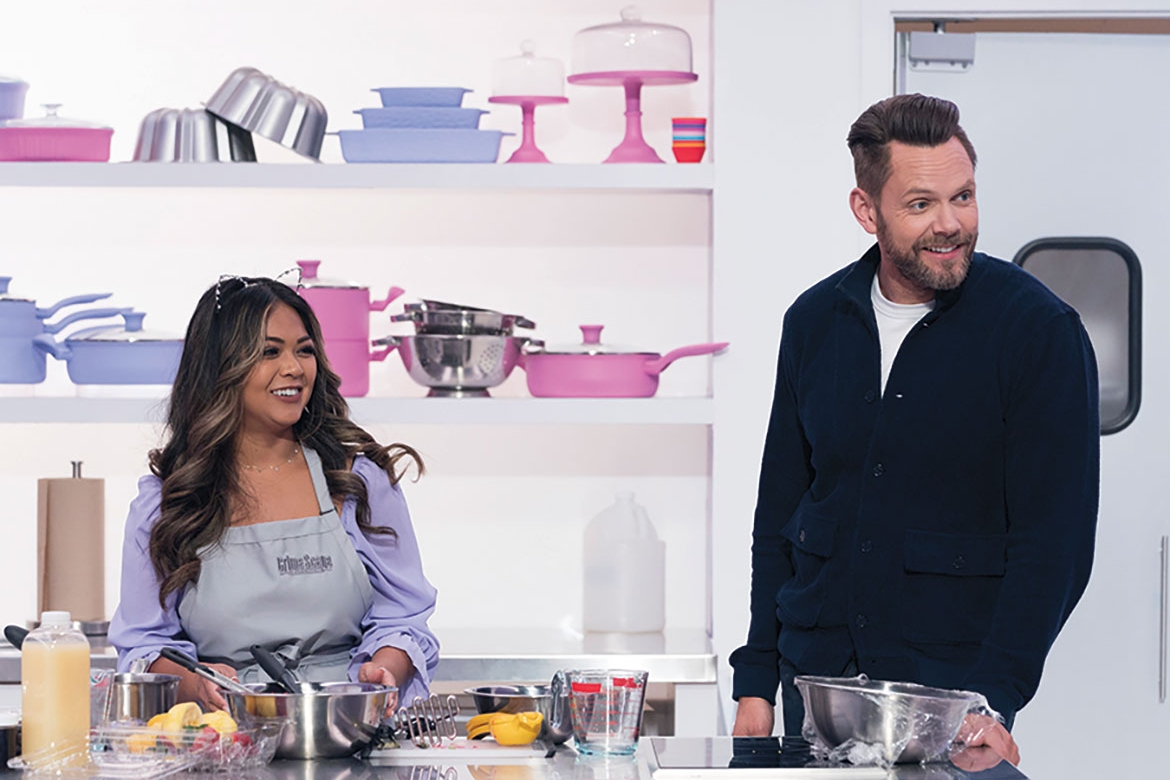Off the Menu: Why Cooking Shows Are a TV Staple
As food competition shows evolve, they add other TV genres to the mix.
Form Emmy-winning shows like Grahma Kerr's The Galloping Gourmet to Bravo's Top Chef, programming that teaches us about the art of cooking has long been a television staple.
Lately, however, food-based reality competitions are exploring other genres of storytelling. Shows like Netflix's Is It Cake?, which challenges contestants to create baked good that can pass as other objects, and Hulu’s Secret Chef, on which chefs guess each other’s dishes through blind taste tests, actually share the bones of classic TV game shows like What’s My Line?
The late 2022 TBS series Rat in the Kitchen recalled murder-mystery whodunits as contestants struggle to uncover which of their ranks is a mole sent to sabotage the meal. On Fox’s Crime Scene Kitchen, the second season of which kicked off in June, chefs enter cooking stations where a recipe is already in progress; their job is to finish — or “solve” — the dish in time. Fittingly, the show employs fast-camera zooms and other trademarks of crime procedurals.
“Food is the great equalizer, and access to how to make it has never been [more available],” says Emmy nominee Joel McHale, who hosts and executive-produces Crime Scene Kitchen.
Food is becoming McHale's brand; last year he also hosted E!’s cooking-themed Celebrity Beef and guest-starred on Hulu’s scripted series The Bear, which is set in a restaurant. McHale adds that because “food is something we need every day” and, thanks to TV and the internet, any viewer has access to “techniques to make good, simple recipes,” the topic can be adapted to different programs that appeal to multiple audiences.
That universality also helps cooking shows bring niche communities into the culinary mainstream. On Hulu’s Drag Me to Dinner, drag performer duos compete to throw the best impromptu dinner party. Impeccable makeup and costumes abound, as do bawdy language and puns. The award is a golden grater (“because one team is great, but the other is greater”), and there’s a panel of judgers — spelled that way because they’re not judges, just judgy. High style notwithstanding, contestants still trip over each other and have recipe disasters.
“It’s a faux take on other reality shows, [because] nothing is serious. There are literally no stakes on this show,” says showrunner and executive producer James Sunderland (Lip Sync Battle). “When you take off those pressures, it allows the comedy to be freewheeling and funny and reactionary in the moment.”
One thing that is real on Drag Me to Dinner? The open bar. That’s a gag even Graham Kerr’s fans could appreciate.
This article originally appeared in emmy magazine issue #10.







